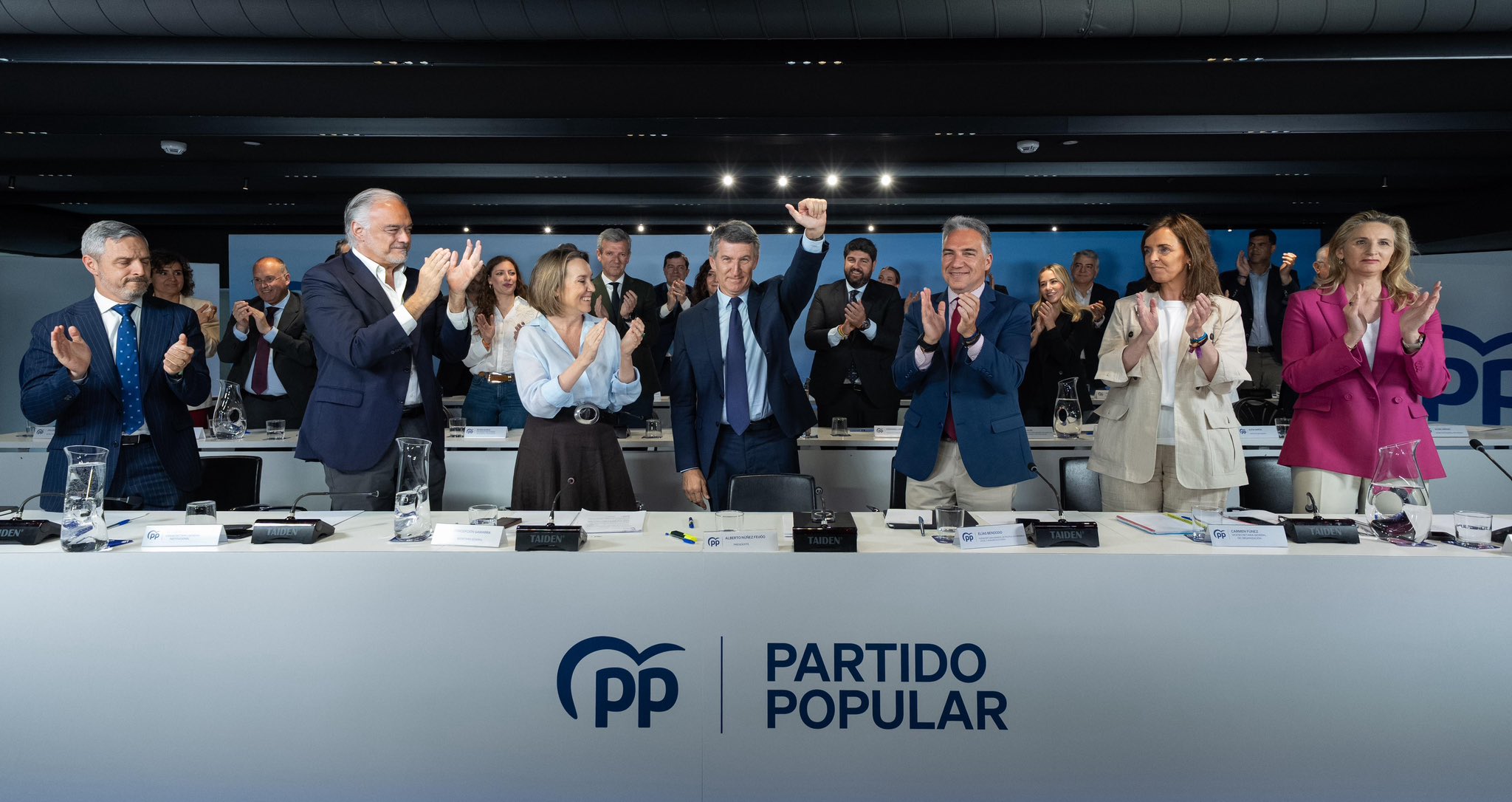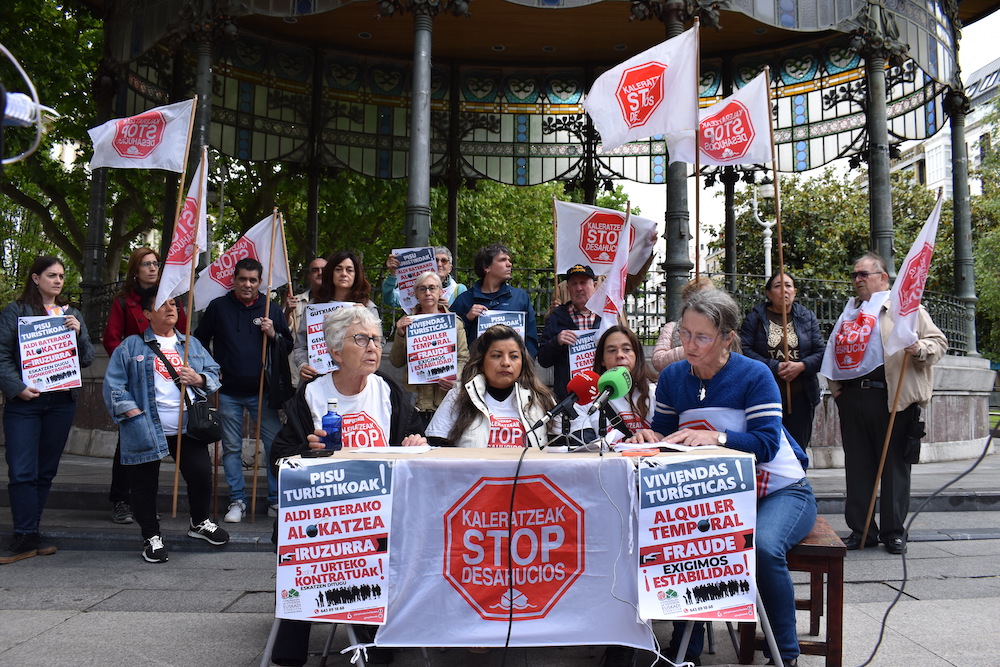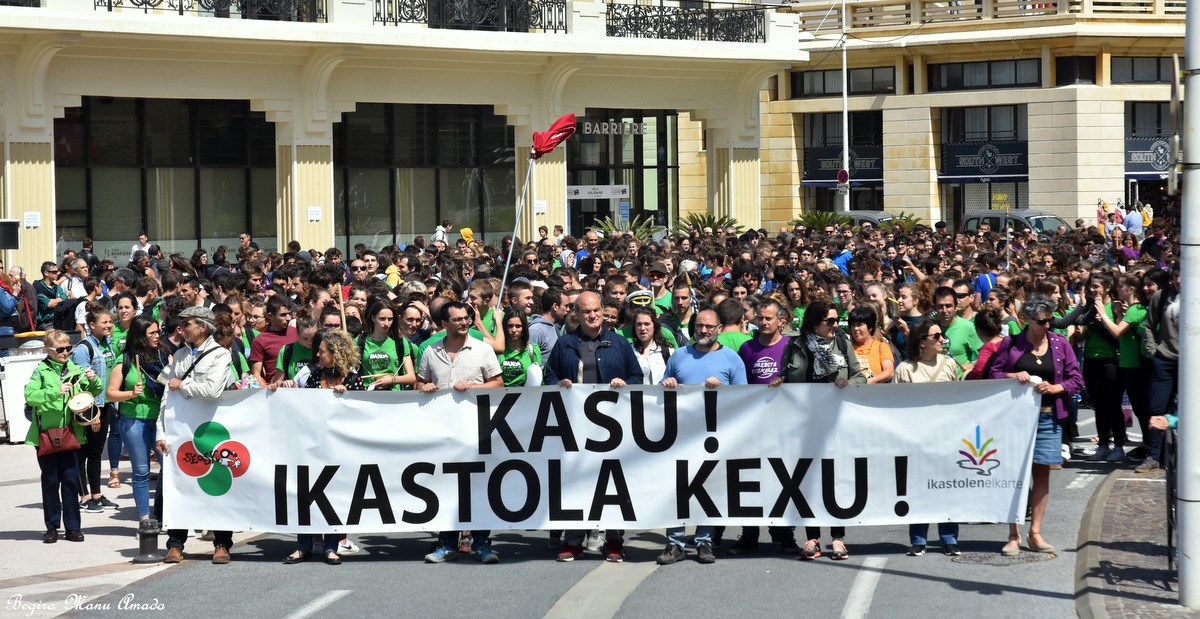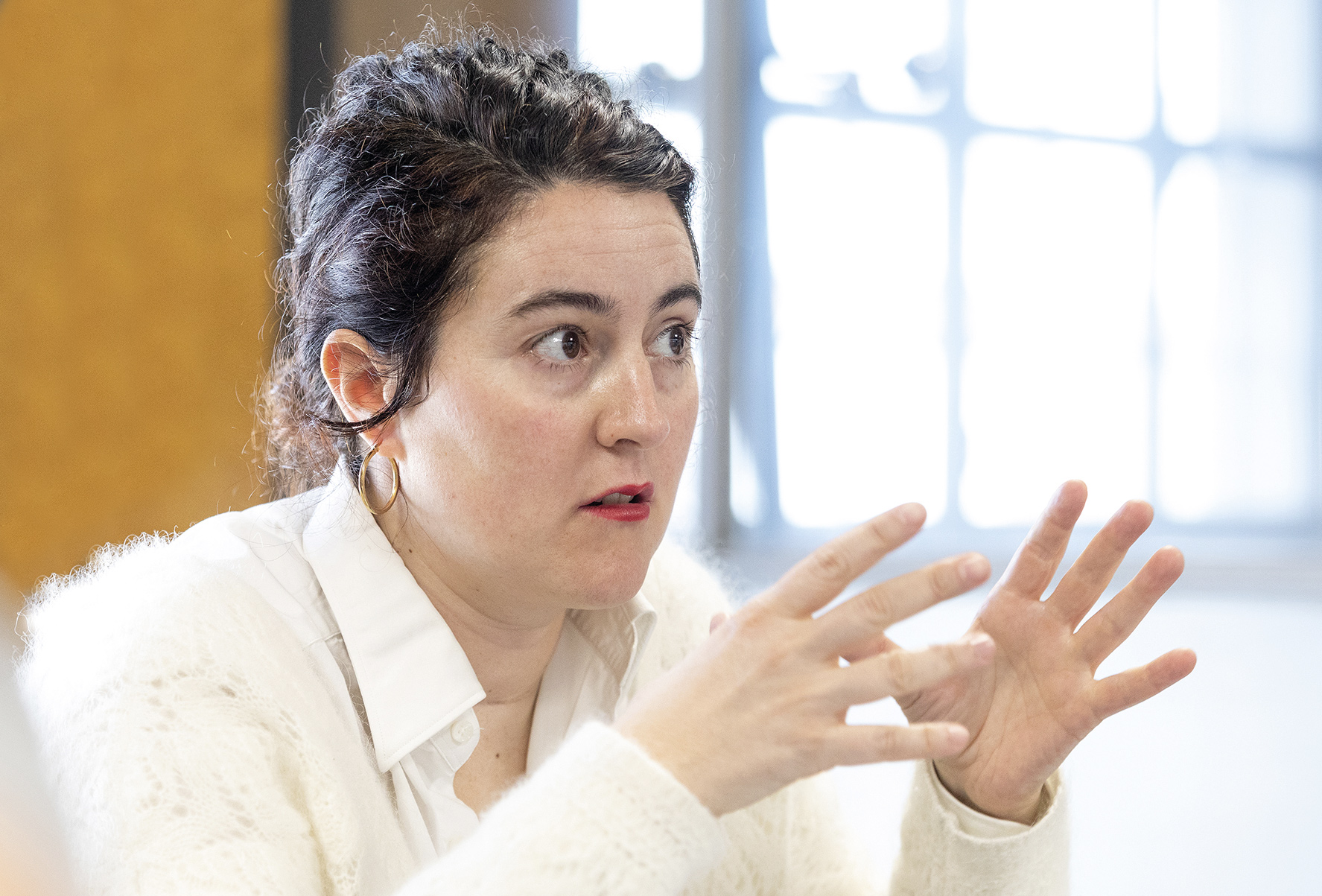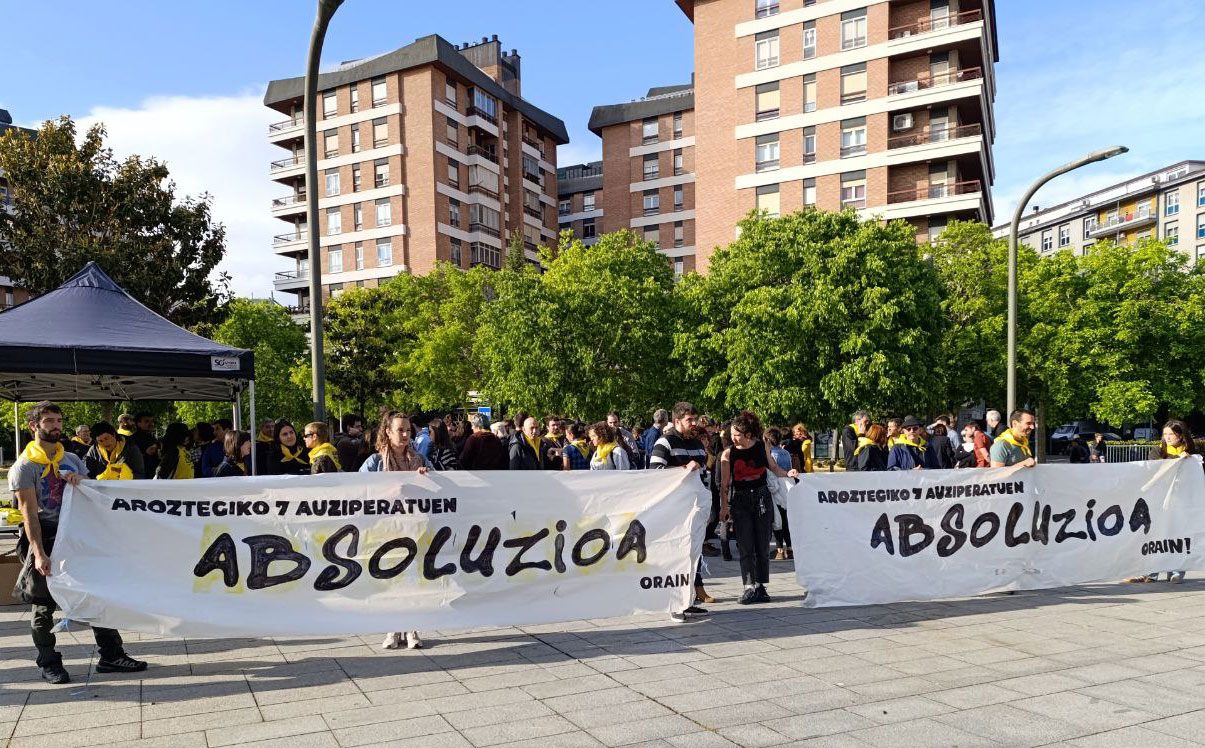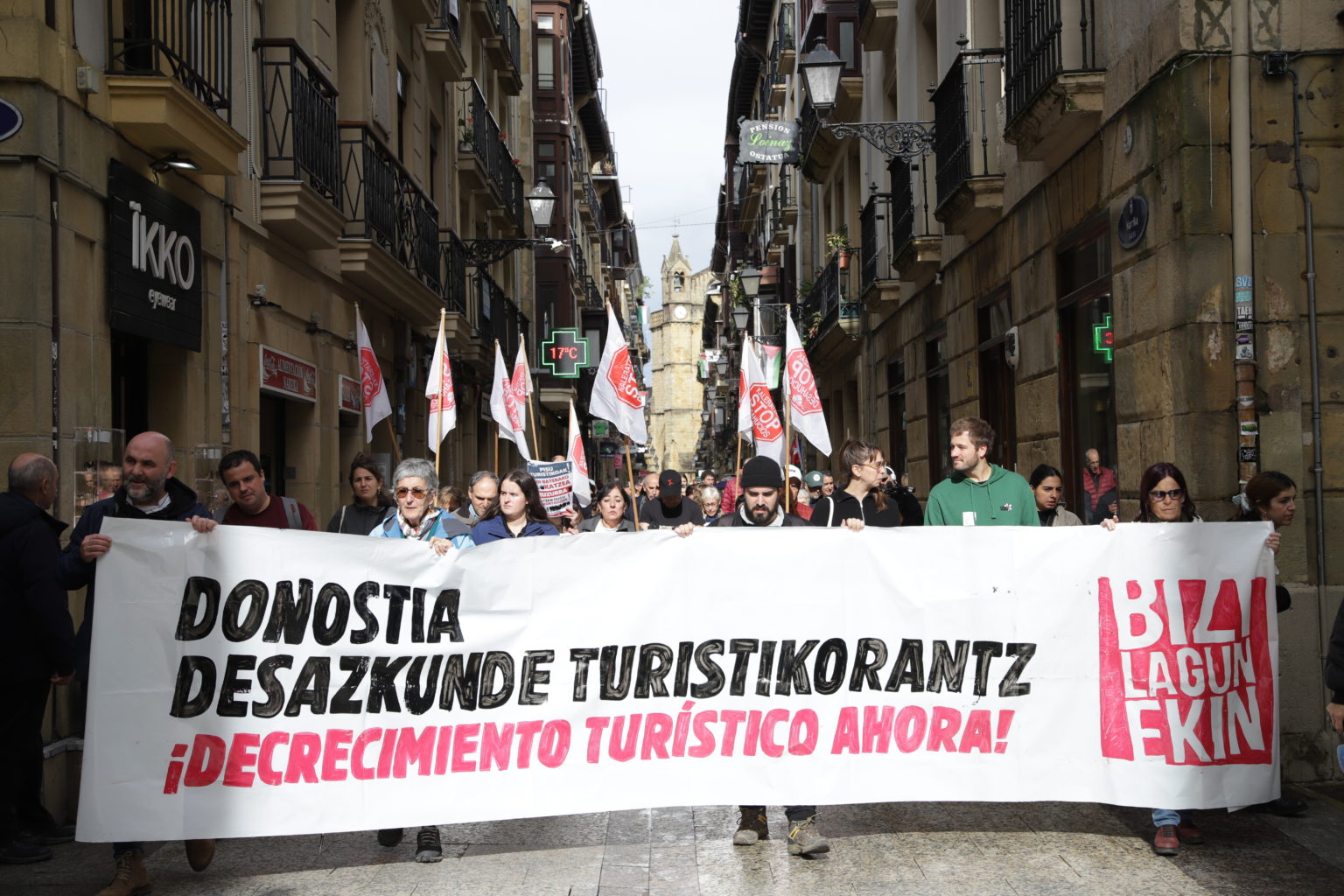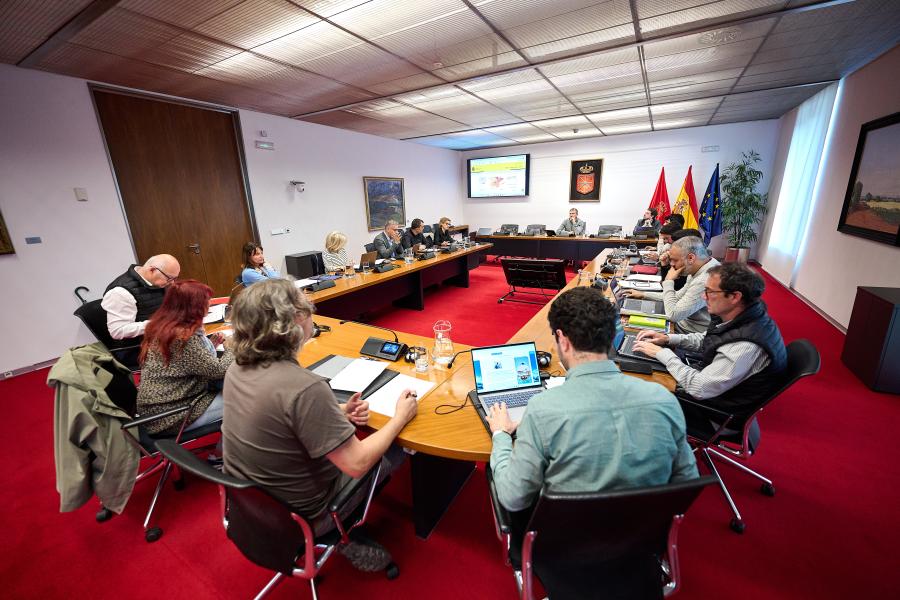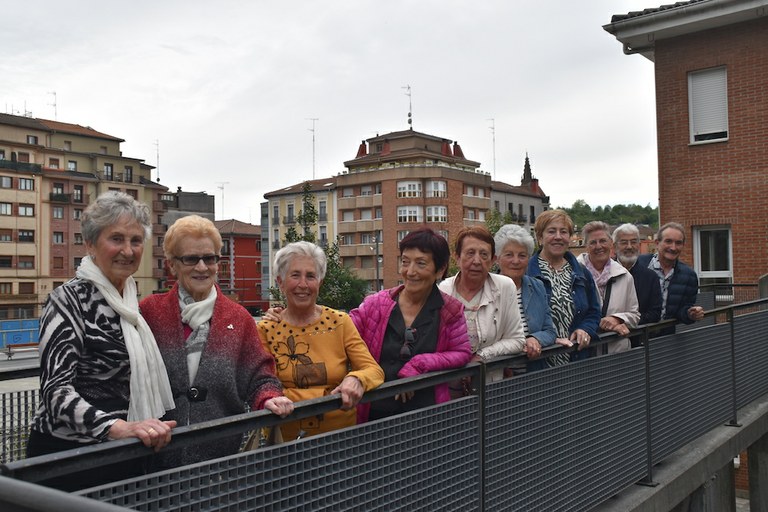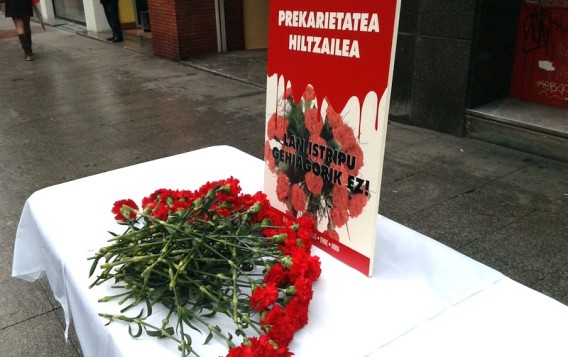The reform of Macron’s pension systems: a new step towards dismantling the public sector
- The French Prime Minister presented the reform of the pension system on 11 December. With the implementation of the point-by-point system and the opening to capitalisation, the workers’ unions envisage the end of the model that has been developed so far. The mobilization against reform has begun strongly, with three days of general strike, on 5, 10 and 12 December. The day after the presentation, the CFDT, UNSA and CFTC trade unions have also joined in mobilizing against the proposed law.

Contrary to the general strike of 5 December in Baiona, they regretted that the reform of the pension system of the French President, Emmanuel Macron, depends on a more general plan: “The Labour Code, the civil service, public services, unemployment insurance and now pensions… everything is being brutally attacked by Macron, increasing the dimension of social inequalities.” On 5 December it was the first day of mobilisation against the reform of the pension system. The first, but not the last, in which workers from sectors such as the railway company SNCF or public transport in the area of RATP Paris voted for the continuation of the strike. The movement is also underway in Lizeo and in universities. On 12 December they carried out the third day of strike, which has taken place amid demonstrations and blockades.
Prime Minister Edouard Philippe presented the reform on Wednesday after meeting the trade unions early in the week. What he wants to do “without confrontation” but “firmly”. However, the disagreement is there and there will be strikes – perhaps undefined – again, blockades, demonstrations and acts in a new way. In the last year, the opponents will have as a challenge to unite the Jaka Hori movement, which has developed autonomously, and the trade union struggle around this reform. Because seeing the determination of the government, a massive and rapid movement that lasts in time will be essential to win the battle.
In the name of “modernity” and “transformation”, the Macron Government has already taken a number of decisions and measures that go in the same direction: the dismantling of public services. With the reform of the pension system, Macron, named with the nickname “the president of the rich”, has once again cast oil on the social fire that burns in France. The fact that 1.5 million demonstrators (806,000 people according to the count of the Ministry of the Interior) were counted in the first mobilisation on 5 December is significant. The movement to maintain a toilet system based on intergenerational solidarity is expected to warm up the winter. Some 10,000 people gathered last December 5 in the streets of Baiona, convened by the interunion CGT, FO and FSU and the unions LAB, CFE-CGC, Solidaires and Unsa Education. The students also mobilized. The most massive demonstration in recent years, according to the convoys of the march.
Macron will set in motion a point system to ensure tomorrow's rallies. Throughout his working life, the worker will earn points which, when he reaches retirement, will become euros, according to an index. Although the Government has ensured that the points will have a fixed value, it alone will not be obliged to do so. In keeping with the objective of maintaining a balanced financial situation, the government could lower the value of the new toilet punto.El by charging an annual pension for the value of the point of access to retroactivity.
The final discourse of the Baiona demonstration clarified the reality behind this criterion: “The value of the point will depend on the political and economic circumstances of the moment, the stock market crisis, the International Monetary Fund and the ultra-liberal policy of the European Union.”
Lower pensions, yes or yes
The reform would result in a reduction in pensions. The Delevoye report, on which the proposal for a law is based, states that the government will limit the money for withdrawals to 14% of French GDP. Knowing that in the coming years the number of pensioners will increase rapidly, yes or no, the pension allocated to each. When explaining the reform, opponents often use the following image: if the pie is more edible for it, when sharing, the pie portion is smaller for each. To sum up, “less solidarity and more poverty”, according to the unions. In addition, the reference years for the calculation of the pension will be modified: instead of the twenty-five best years for the private and the six best months for the public, it will be looked at every year. This will also lead to a decrease in the toilet range. “Professional fluctuations, periods of unemployment, partial employment contracts will be paid harshly at the time of withdrawal”, according to the interunion between the CGT, FO and FSU unions. The French Government is opening up new avenues of access to a dignified and stimulating pension: it is possible if one refuses the money for himself. In fact, the reform paves the way for an additional system of capitalisation.
The asset will be able to hold money when it receives the toilet. At the moment, the possibility of leaving the distribution system and moving to the capitalisation system – to those earning more than EUR 27,000 gross to the mes- is limited to the richest, but with the reform this limit will be reduced (to EUR 10,000 gross per month, according to the Delevoye report), opening the possibility to more workers.
Capitalisation risk
More workers will be able to leave the distribution system and access the capitalisation system
This limit may be further reduced in subsequent years, so the capitalisation system will replace the solidarity system, or at least complement the distribution system for those who have the power to exclude money. What is true is that the money earmarked for the pension fund will be reduced, as the richest (those earning more than EUR 10,000 gross per month) will not be able to contribute. The contribution rate will be 2.8%, while the lowest salaries will be 28%.
On the other hand, the main argument of supporters of reform is the end of the special regimes that the reform will produce. Forty-two different pension funds currently exist, with different calculation systems and resulting in differences between pensioners.
Completion of special schemes
A reality "incomprehensible and unbalanced", according to Macron. The reform will cause everything to dissolve and create one. However, it has promised that the change will take place in a "progressive transition". It is aware that the strike movement is being continuous and effective in the sectors with these special regimes. For example, in the SNCF train company and in RATP transports. As regards the introduction of a single pension system, opponents are making public arguments against it. “Many think that this reform is limited to the end of special regimes. However, this is only a small part of the reform. In addition, only 3% of the workforce is in these special regimes,” explains Regis Nos Retraites, a member of the collective. Although it considers this change on the road to reducing social inequalities interesting, it states that it can be done by maintaining the current pension system. The reform will allow all those detained to have a minimum pension of EUR 1,000, as explained by the French Government in a statement. It also says that this minimum pension can be set under the current system. “They are elements of communication… it is not the foundation of the reform”.
The farmers' union FNSEA has shown its support for the reform in view of the two measures taken by the Rajoy Government. However, the agricultural union Confederation Paysanne, which includes the OECD of Ipar Euskal Herria, has opposed: “We are in favour of a pension system based on solidarity and equity, in which everyone is quoted according to their possibilities and receives it according to their needs.”
The CFDT trade union, which until Philippe's presentation had no disagreement, also deeply regretted the proposed law. If he did not call for the general strike on 5 and 10 December, he called for the mobilizations on 17 December. Like CFDT, the UNSA and CFTC trade unions have also opposed the reform the day after Philippe’s presentation.
The real causes of the deficit
Since it is a deficient pension system, the Government considers "the achievement of financial equilibrium" to be important. Officially, that is the objective of the reform. According to the latest report by the Committee on Pension Guidance (COR), in the worst case scenario, it will have a hole of EUR 17.2 million by 2025; in the best case, it will be EUR 8 miles. However, this analysis has been refuted by the ATTAC partnership, which added that the hole can disappear if a new policy is pursued. “This pseudo-deficit comes mainly from the reduction of resources for the pension system. (...) And this reduction is due to the large reduction in staff numbers, the reduction in uncompensated social contributions and the reduction in the economic burden transferred by the Unedic, responsible for unemployment, and the CNAF Fund for Family Housing”. There are also other departures: The Rozas Reserve Fund has more than 30 miles of euros. In 1999, the Socialist Party’s Lionel Jospin Government set up this fund with the idea of putting that money into a hole.
ATTAC combination: "This pseudo-shortage of toilet boxes comes mainly from the reduction of resources for the pension system".
By the Government ' s decision, the Yellow Jacket measures to reduce its protest have also increased the hole. They decided to lower social contributions (inter alia by removing social charges over extra hours and not to increase the contribution of the CSG to low pensions).
Under the Veil Act of 1994, the State must ensure full compensation for contributions and disappearances, so that the Social Security system is not in short supply. In October Members voted not to do so, while Senators voted in November in favour of the implementation of the Veil Law. After the last vote on 3 December, the State will not make any compensation whatsoever. According to calculations by the Social Security Committee, both measures amount to a hole of EUR 2.7 million (half of the 2019 deficit).
Public hospital workers started a strike
in March in
protest of cutting policies
The ninth month of strike against three claims and deafness.” This is summarized by Pierre Schwob, member of the collective Tellier Inter-Urgences. The strike movement that began in March from hospital emergencies in Paris has been extended to other services and cities, at the local level, with the launching of an indefinite or punctual strike. For example, workers in nursing homes and doctors have joined in mobilizing. They have also focused on the public hospital in Baiona and have joined the general strike on 5 December: two birds with a stone to protest the reform of the pension system and defend their own demands. “Government measures and speeches do not meet our needs,” says Thomas Cabrone, a nurse at the Baiona hospital. In particular, they have three demands: more employment, more room for patients and more pay. In other words, the conditions for maintaining a quality public service.
“Macron is looking at relativity, we look at the sick: regardless of their economic and social situation, we want to serve them all, guaranteeing the quality of art. This is our calling,” in Cabrone’s words. For 20 years, in addition to the removal of 100,000 beds, Governments have reduced emergency services to 95 and mothers to 50 per cent. For ten years, they have suffered a cut of EUR 8.4 million, which represents a cut of 10% of the budget. President Emmanuel Macron is reducing public service at an even faster rate. The “modernization of the State” promised during the electoral campaign is being carried out with the cut in the public services blicos.El resulting from this policy is very clear in hospitals: the sick accumulate in the corridors and waiting rooms, and the nurses become increasingly tired, overcome and afflicted by the burnout syndrome.
The measures presented on 20 November by Prime Minister Edouard Philippe have not satisfied the strikers: neither new posts, no more places for the sick, nor “as a reflection of contempt” premiums for the monthly fee (not the EUR 300 supplement claimed). These premiums, in addition to being non-remunerative, shall not be taken into account within the toilet system and may be cut at any time. In addition, not all hospital workers will receive this premium, for example, the medical service agents, who are the ones with the shortest contracts and the worst salaries. Philippe has also promised measures to improve the financial situation: Starting in 2020, the government will open a total budget of €1.5 million for public hospitals, equivalent to €500 million per year. The State will assume one third of the debt of public hospitals, amounting to 10 miles of Euros. Inter-union workers feel that this is not enough and that they will again enjoy a day of strike and mobilisation on 17 December.
Departure: to private or fire brigade
When the public health service cannot fulfill its mission, the patient has two ways: to go to the private – if it has financial capacity – or to the fire service – unlike what happens in the private, because it brings the kit. In particular, firefighters have also been on strike since last May. On 15 October, a day of joint protest was held with hospital workers. Firefighters have increasingly scarce resources to meet the increasing demands. They also regret the lack of workload and resources. However, no positive response has been received: “Anger is on the rise and unanswered voices”, complete the words CGT, FASPP-PATS, FO-SIS, CFDT-SDIS, UNSA-SDIS, SPASDIS-CFTC, Avenir Secours and CGE-CGINTERC.
Provision is also made for the abolition of a special scheme covering the risk of the profession from the reform of the pension system. They participated in the general strikes on 5 and 10 December.
PPk Senatuan proposatu du, gainera, euskal preso politikoek damua erakutsi behar izateko xantaia areagotzea.
Maiatzaren 22an EAEko Legebiltzarrak mila milioi euro zorpetzeko lege proiektua onartu du “zientzian, teknologian, enpresan eta industria sektorean eragiteko”. Naiz hedabideak jakitera eman duenez, Eusko Jaurlaritzak KPMG Asesores SL enpresari eskatu dio plana... [+]
Donostiako Parte Zaharreko maizter batek 11 hilabeterako alokairu kontratua bost urterako legezko kontratu bihurtzea lortu du.
Washingtonen Israelek duen enbaxadako bi langile tiroz hilda agertu eta gero egin ditu adierazpenak Netanyahuk. Israelgo Gobernuak zuzenean lotu ditu Washingtongo erasoak eta Europako zenbait gobernuburuk Gazako sarraskiaren aurka egindako adierazpenak.
Mireia Centeno Gutierrez psikopedagogoak haurren elikaduraren inguruko zenbait gako eman ditu; hala nola jatera behartzeak eta jakiak debekatzeak dituen ondorioak aipatu ditu.
The defendants testified on Thursday, and their statements could be summarized as follows: The citizens who gathered in the square of legumes or in the camping area decided collectively what to do, in general, to go to the field of the works and put them passively in... [+]











